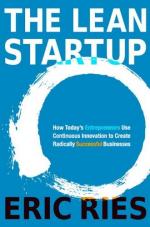|
This section contains 1,826 words (approx. 7 pages at 300 words per page) |

|
"[An] entrepreneur is a person who habitually creates and innovates to build something of recognized value around perceived opportunities" (Kotelnikov Internet article). This "recognized value" should incorporate social and ethical concerns, as well as economic ones. There are moral dimensions to all forms of entrepreneurship.
Conceptual Distinctions
Entrepreneurs include both scientists seeking to advance research and engineers seeking new design opportunities. Entrepreneurship is not the same as invention. Alexander Graham Bell obtained a broad patent that included the transmission of speech, but he was not an entrepreneur—others took his patent and used it to create a corporate giant (Carlson 1994). Thomas Edison, in contrast, supervised invention, manufacturing, and marketing of a new electric lighting system (Hughes 1983); therefore, he is both inventor and entrepreneur. Classic theorists and economists also have developed and expressed their own opinions concerning entrepreneurship and its influence on economic development. In 1928, economist Joseph Schumpeter stated...
|
This section contains 1,826 words (approx. 7 pages at 300 words per page) |

|


